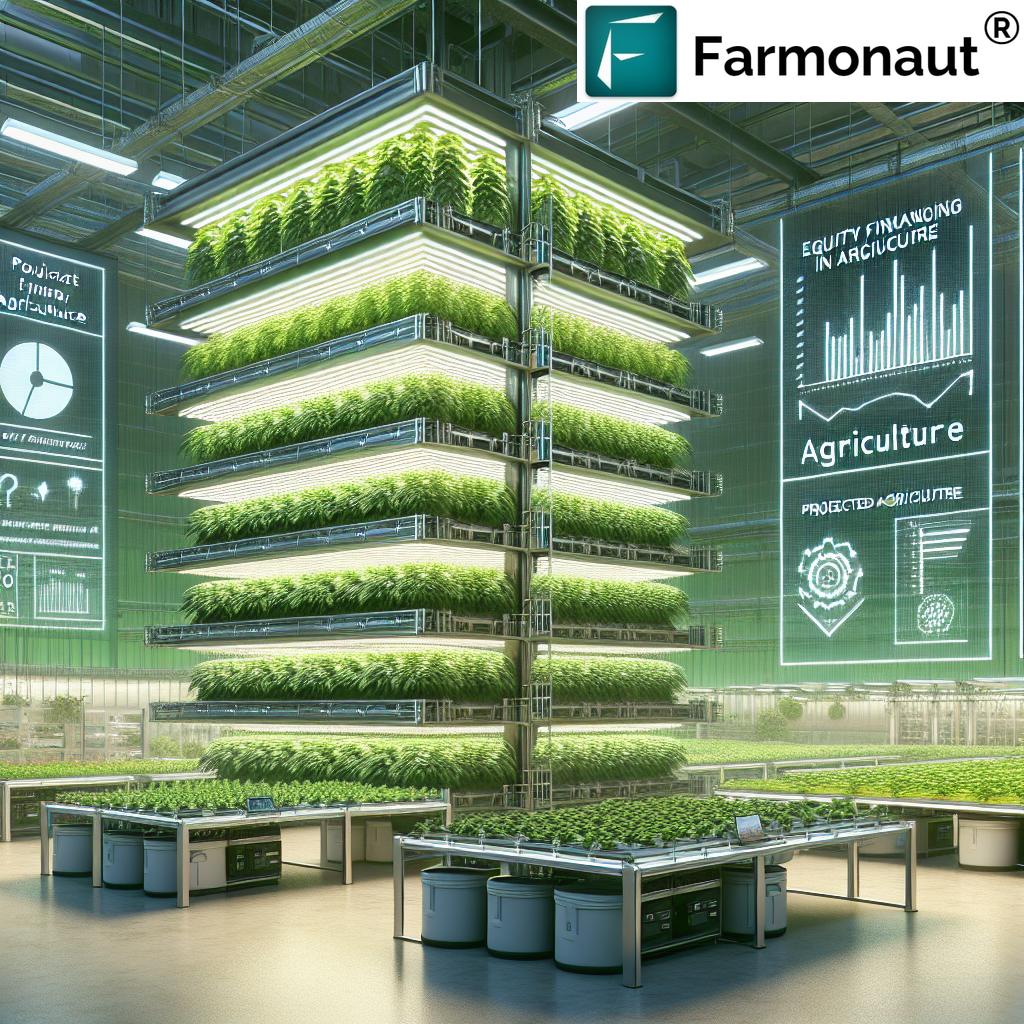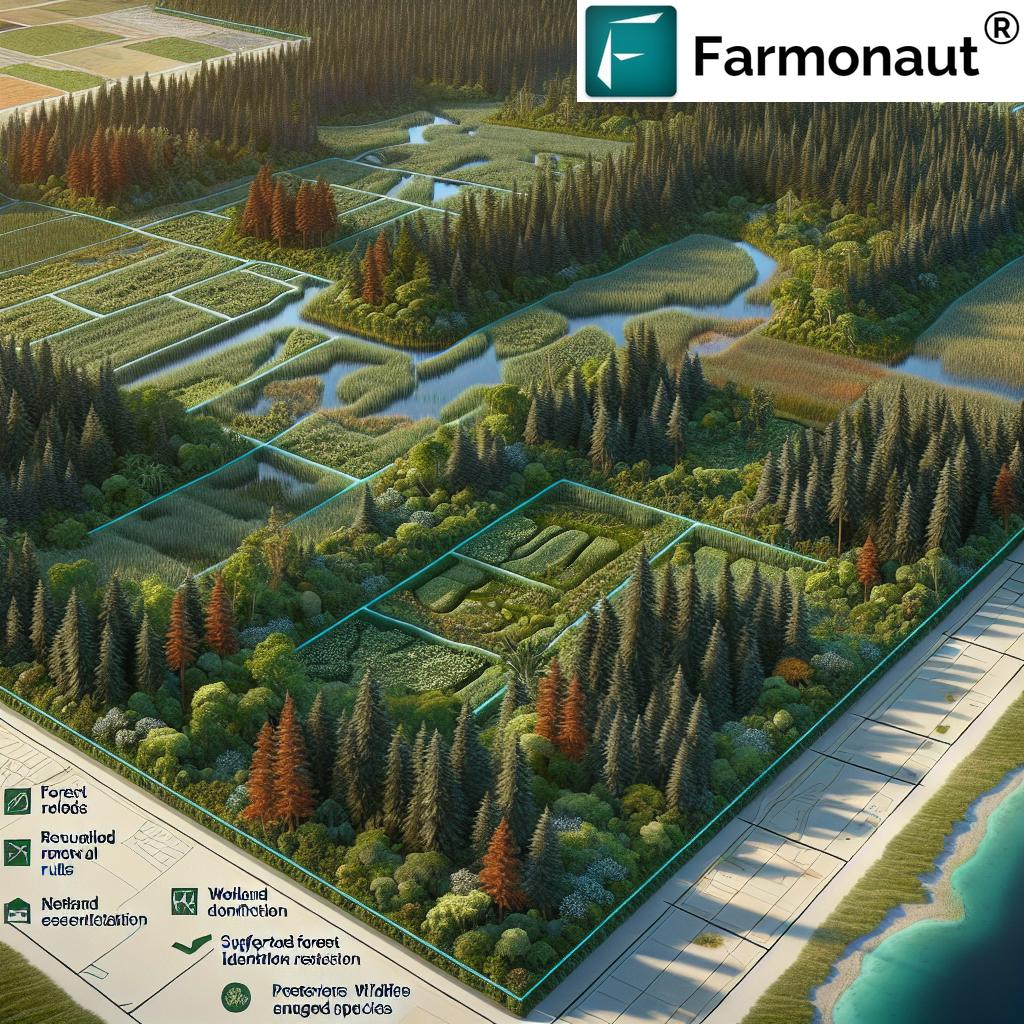Best Sustainable Agriculture Programs Missouri & Ontario: Pioneering Sustainable Farming for 2025 and Beyond
“Over 80% of Ontario’s sustainable agriculture programs now include climate-smart soil management courses.”
“Missouri’s top universities offer over 15 degree options in sustainable agriculture and environmental stewardship.”
As global food demand increases alongside deepening concerns about environmental degradation, sustainable agriculture programs have transitioned from a niche concept into a foundational and vital approach for the future of farming. In 2025, Missouri stands at the forefront in deploying advanced sustainable agriculture programs that strike a balance between productivity and agile environmental stewardship, offering a model for adaptive farming transformations in regions including Ontario and Canada at large.
In this feature, we deeply explore the best sustainable agriculture programs Missouri and Ontario have to offer, examine the key practices, teaching methods, and technology that define their innovation, compare these initiatives, and illustrate how they are pioneering sustainable, climate-resilient farming for the future.
Understanding Sustainable Agriculture Programs Missouri: Current Landscape & Principles
Sustainability in agriculture encompasses a vision where food production meets current needs without compromising the ability of future generations to meet theirs. In Missouri, this translates to integrating ecological principles into farming systems to enhance soil health, effectively conserve water resources, reduce chemical inputs, and actively promote biodiversity.
- Diverse climate and soil types require adaptive strategies for row crops, livestock, and mixed operations.
- Conservation-focused management significantly reduces environmental impact while maintaining strong farm productivity.
- Sustainable programs promote balance between productive yields, farmer resilience, and land stewardship — the cornerstone for the region’s future agriculture.
The state’s approach to sustainable agriculture highlights educational outreach, innovation in research, and step-by-step farmer support programs. By encouraging cover cropping, conservation tillage, integrated pest management, rotational grazing, and advanced technology adoption, Missouri continues to lead by example in agricultural sustainability.
Leading Sustainable Agriculture Programs Missouri: Models and Innovations
Missouri has carved a reputation for itself among the best sustainable agriculture programs in the U.S., championed by universities, state agencies, and farmer-led initiatives. The approach is centered on a blend of education, research, and direct farmer support:
Key Sustainable Agriculture Programs in Missouri
-
University of Missouri Extension: Sustainable Agriculture Program –
Offers workshops, field days, personalized consulting to help farmers adopt cover cropping, conservation tillage, IPM (Integrated Pest Management), rotational grazing, and soil health management. -
Lincoln University Cooperative Extension: Environmental and Sustainable Agriculture Program –
Focuses on agroecology, integrated livestock-crop production, organic systems, and small farm outreach for under-served communities.
Community-Driven and Policy Initiatives
-
Missouri Department of Agriculture: Soil and Water Conservation Cost-Share Program –
Incentivizes adoption of buffer strips, updated irrigation systems, and pollinator-friendly practices for more efficient water use, erosion control, and improved nutrient management. -
Federal and State Grant Programs –
Provide funding to farmers for implementing new sustainable practices such as installing windbreaks, composting systems, crop rotation experimentation, and modern irrigation solutions.
These key programs enhance soil health, reduce erosion, minimize synthetic fertilizer and pesticide dependence, and improve farm resilience. The integration of advanced precision farming technologies also reflects Missouri’s commitment to the future of sustainable agriculture.
Sustainable Agriculture Programs Canada & Ontario: A Dynamic Comparative Perspective
Across Canada and particularly in Ontario, sustainable agriculture programs anchor their efforts around climate action, freshwater protection, and community engagement. The region’s distinctive features and policy direction create a rich landscape of models and opportunities for a resilient food system post-2025.
Ontario’s Environmental Farm Plan (EFP) & Related Programs
-
Environmental Farm Plan (EFP) –
Provides self-assessment tools and consultative support for individual farms. The EFP guides participants through nutrient management planning, energy efficiency improvements, biodiversity conservation, and soil health strategies. -
Ontario Soil and Crop Improvement Association Programs –
Focused on soil-restoring practices, pollinator habitat enhancement, and wetland restoration on farmlands. -
University-led Programs (e.g., University of Guelph) –
Known for sustainability-focused degrees, research on regenerative agriculture, organic cropping systems, and farm-to-market innovation.
Canadian National Perspective
-
Canadian Agricultural Partnership & AgriScience Programs –
Provide research, monitoring, and funding for climate-smart agriculture, crop diversification, and food security. -
Indigenous Knowledge Integration –
Canada’s programming often incorporates First Nations’ land stewardship principles for holistic ecosystem management and sustainability. -
Farmers for Climate Solutions & On-Farm Climate Action Fund –
Support implementation of carbon sequestration, sustainable energy practices, and best-in-class nutrient management by Canadian farmers.
Ontario and broader Canadian sustainable agriculture programs showcase a full-spectrum, systems-based approach to sustainability — integrating climate resilience, economic viability, and thriving rural ecosystems.
Comparative Program Features Table: Best Sustainable Agriculture Programs Missouri, Ontario, and Canada
| Program Name | Location | Duration | Key Focus Areas | Est. Annual Student Intake | Technology/Innovation Highlights | Environmental Impact Score* |
|---|---|---|---|---|---|---|
| University of Missouri Extension: Sustainable Agriculture | Missouri, USA | 2–4 yrs (Bachelor/Master/Certs) | Regenerative ag, IPM, cover crops, rotational grazing | 300+ | Field-based sensors, data-driven soil health monitoring, certification workshops | 9.1/10 |
| Lincoln University Cooperative: Environmental & Sustainable Ag | Missouri, USA | 2–3 yrs (Cert/Degree Options) | Agroecology, organic farming, outreach, small farm focus | 75–100 | AI pest monitoring, organic input experimentation | 8.7/10 |
| Ontario Environmental Farm Plan (EFP) | Ontario, Canada | 1–2 yrs (Self-paced) | Nutrient mgmt, energy, soil health, biodiversity | 2,000+ | Online assessment, best practice benchmarking, GIS mapping | 9.3/10 |
| University of Guelph Sustainable Ag Programs | Ontario, Canada | 3–4 yrs | Regenerative, food systems, ecosystem services | 400+ | Remote sensing, digital modules, agri-food innovation hubs | 9.0/10 |
| Canadian AgriScience Cluster Programs | National (Canada) | 4 yrs | Climate adaptation, tech, crop diversity | 350–500 | Satellite monitoring, field robotics, carbon footprinting | 9.4/10 |
*Environmental Impact Score is an estimated, composite measure of eco-friendly outcomes, carbon reduction, and biodiversity improvements based on publicly available program details as of 2025.
Best Sustainable Agriculture Practices and Key Innovations
Whether in Missouri, Ontario, or Canada, sustainable agriculture programs hinge on a set of tried, tested, and continually-advancing best practices. These methods are at the heart of every leading sustainable agriculture program discussed above.
Key Best Practices in Sustainable Farming Programs (Missouri & Ontario)
-
Conservation Tillage:
- Reduces soil erosion and maintains soil organic matter.
- Promotes water infiltration and soil biodiversity.
-
Cover Cropping:
- Protects soil structure during off-seasons.
- Enhances nutrient cycling and water retention.
- Reduces weed pressure and pest outbreaks.
-
Integrated Pest Management (IPM):
- Relies on naturally occurring pest controls, minimizing chemical inputs.
- Targeted pesticide use, only when necessary.
-
Rotational Grazing:
- Protects pasture health and forage species diversity.
- Prevents overgrazing and soil compaction.
-
Nutrient Management Planning:
- Reduces risk of nutrient runoff into waterways.
- Optimizes fertilizer use for maximum efficiency and minimal waste.
-
Water Conservation & Improved Irrigation:
- Drip systems, updated irrigation schedules, buffer strips—all ensure efficient use and protection of water resources.
- Buffer strips also mitigate pesticide and nutrient runoff, further protecting regional biodiversity.
-
Soil Health and Biodiversity Restoration:
- Advanced monitoring of soil health and microbial activity using technology-driven insights.
- Boosting pollinator and wildlife habitats to keep farm ecosystems vibrant.
-
Organic and Regenerative Farming:
- Many programs in Ontario and Missouri now offer degree and outreach options specifically for organic and regenerative practices, with focus on soil carbon sequestration and non-synthetic pest control.
Examples of Technology-Enhanced Sustainability
- Precision Agriculture Platforms unify soil sensor readings, drone observations, and automated nutrient application to pinpoint management that optimizes yields and sustainability.
- GIS and Remote Sensing—as seen in leading Ontario programs—provide spatial analysis for site-specific management, enabling conservation practices to be targeted precisely where they yield the most benefit.
These best practices empower farmers and researchers within sustainable agriculture programs Missouri and Ontario offer to both increase productivity and restore ecosystem function simultaneously.
Technology & Innovation in Sustainable Agriculture Programs Missouri & Ontario
In 2025, technology is rapidly amplifying the results of sustainable farming programs in Missouri, Ontario, and across Canada. Next-generation platforms enable:
- Real-time monitoring: Drones, sensors, and satellite platforms track crop health, soil moisture, nutrient status, and pest threats.
- AI-based recommendations: Machine learning analyzes big data to suggest when and how to irrigate, fertilize, or intervene for optimal sustainability and yield.
- Blockchain-enabled traceability: Allowing full transparency from field to fork, increasingly demanded by conscious consumers and regulators.
Ontario, for example, invests heavily in GIS mapping, environmental risk analysis, and climate-smart energy strategies—all enabled by technology. Similarly, Missouri’s university research plots and extension services are now equipped with digital remote sensing, variable-rate application tools, and application-specific analytics.
To learn more about blockchain for traceability in agriculture and its benefits, see our detailed guide: Farmonaut Product Traceability.
Superior satellite monitoring and AI are transforming resource efficiency, carbon accounting, and on-farm decision-making—making sustainability measurable and actionable on every acre.
Empowering Sustainable Agriculture Programs with Satellite Technology: Farmonaut
To fully unlock the power of technology-driven sustainability, today’s best sustainable agriculture programs are increasingly turning to satellite-based solutions.
We at Farmonaut are committed to making advanced, affordable satellite-driven insights accessible for farmers, agri-professionals, researchers, and governments worldwide—including those in Missouri, Ontario, and across Canada. Our platform bridges the gap between cutting-edge space technology and day-to-day sustainable farm management:
-
Satellite-Based Monitoring:
Our platform delivers multispectral satellite imagery, providing vital data on crop health (NDVI), soil moisture, and environmental conditions. This supports precision input use, conservation planning, and resource optimization at field, farm, or landscape scale. -
Real-Time AI Advisory (Jeevn AI):
Enables farmers and program administrators to receive instant, actionable recommendations tailored for sustainability, productivity, and climate adaptation. -
Blockchain-Enabled Traceability:
Farmonaut’s blockchain traceability systems ensure the authenticity and transparency of food from farm to market, critical for both regulatory compliance and consumer trust. Learn more about Farmonaut Blockchain Traceability. -
Fleet & Resource Management:
Our intelligent tools optimize farm logistics, vehicle and machinery use, and input allocation—maximizing operational efficiency while promoting sustainable resource allocation. See how organizations streamline farm logistics via Farmonaut Fleet Management. -
Environmental Impact Monitoring:
Carbon footprint monitoring and emissions tracking help farms comply with evolving sustainability requirements while identifying pathways to carbon-neutral agriculture.
Developers and data science teams interested in programmatic access can explore:
- Farmonaut Satellite API – Integrate satellite intelligence into your own sustainable farm management workflow.
- Developer Documentation for Farmonaut API
Large-scale operations and research administrators seeking centralized control will appreciate our Agro Admin Farm Management Suite—built for multi-farm and landscape-level monitoring, reporting, and sustainability benchmarking.
If your initiative focuses on plantation, afforestation, or forest health monitoring, you can benefit from our advisory services: Farmonaut Plantation & Forest Health Advisory.
Challenges and Opportunities for Sustainable Agriculture Programs Missouri, Ontario & Beyond (2025+)
Despite inspiring progress, farmers and sustainable agriculture programs continue to face noteworthy challenges and opportunities:
Key Challenges
- Climate Variability: Extreme weather events and shifting precipitation patterns threaten everything from soil health to production efficiency.
- Economic Uncertainty: Fluctuating commodity prices and evolving input costs require programs to teach robust risk management and financial planning for resilience.
- Labor Shortages: Particularly for hands-on, knowledge-intensive practices like organic certification, cover cropping, and integrated rotational systems.
- Program Accessibility: Ensuring all sizes and types of farm operations benefit, including smallholder and Indigenous farmers.
Opportunities and Forward Movement
- Cross-border Learning: With Missouri’s success as a model, and Ontario’s policy depth, there are increasing opportunities for the exchange of practices, innovation, and research.
- Climate-Smart Agriculture: Carbon sequestration, renewable energy integration, and resource-efficient systems become ever more central to policy and curricula.
- Community and Network Support: Strong emphasis on community engagement, local-food economies, and environmental action networks strengthens the resilience and adaptive capacity of participants.
- Tech-Accelerated Impact: Next-generation satellite, AI, and blockchain systems drive data-driven best practices and robust monitoring, verification, and learning.
Sustainable agriculture programs Missouri and Ontario offer are rapidly evolving—building momentum for a more balanced, climate-ready, and equitable food future.
“Over 80% of Ontario’s sustainable agriculture programs now include climate-smart soil management courses.”
“Missouri’s top universities offer over 15 degree options in sustainable agriculture and environmental stewardship.”
Frequently Asked Questions: Best Sustainable Agriculture Programs Missouri & Ontario
What qualifies as a sustainable agriculture program?
A sustainable agriculture program is any structured educational or support initiative that teaches, incentivizes, or implements farming practices which meet current food needs while conserving soil, water, and ecosystem health for future generations. These may be degree programs, online courses, field-based workshops, or comprehensive support initiatives offered by universities, government bodies, or industry organizations.
Which are the top sustainable agriculture programs Missouri offers?
The University of Missouri Extension’s Sustainable Agriculture Program and Lincoln University’s Environmental & Sustainable Agriculture Program are two of the most recognized. They provide research, hands-on field training, and support for implementing cover cropping, conservation tillage, IPM, and more.
How does Ontario’s Environmental Farm Plan (EFP) support farmers?
The EFP is a self-assessment and action-planning tool helping farmers identify risks and adopt best practices in nutrient management, biodiversity, soil health, energy efficiency, and water conservation. The EFP is a model for participatory, continuous improvement at the farm level.
Why is technology so important for sustainable agriculture in 2025?
Advanced technologies—satellite monitoring, AI analytics, blockchain traceability—enable farmers and researchers to monitor progress, optimize management, report on sustainability outcomes, and adapt rapidly to changing weather, market, and regulatory conditions. These solutions make sustainability measurable and scalable.
What resources does Farmonaut offer for sustainable agriculture programs?
We at Farmonaut offer satellite-based monitoring, digital crop health and soil moisture insights, AI advisory for sustainable management, blockchain product traceability, and carbon footprint tracking. Our platform supports individual farmers, programs, and researchers in implementing effective, climate-resilient sustainability strategies. Try our platform on web, Android, iOS, or explore our API.
Are there financial supports for farmers in sustainable agriculture programs Missouri and Canada?
Yes—both regions offer cost-share grants, federal and provincial/state financial assistance, and incentives for sustainable investments like soil health improvements, water conservation, and adoption of innovative technology.
How do sustainable agriculture programs contribute to climate action?
By promoting carbon-sequestering practices (cover cropping, regenerative tillage), precision nutrient management, and energy efficiency, these programs lower greenhouse gas emissions, increase resilience, and steward natural resources for the long-term health of farming and communities.
Conclusion: Sustainable Agriculture Programs Missouri, Ontario & Canada – Leading Us Toward a Resilient Future
Sustainable agriculture programs Missouri, Ontario, and Canada are setting the global standard for balancing food productivity with environmental stewardship. Through a blend of:
- Innovative teaching and research
- Field-based best-practice adoption
- Technology integration—satellite, AI, blockchain
- Community empowerment, and
- Continuous improvement
…these programs ensure resilient farm economies, safeguard natural resources, and build climate-smart capacity for generations. Whether you are a student, grower, program manager, or policymaker, connecting with these educational pillars can empower your role in supporting a thriving, sustainable food system for decades to come.
Explore, adapt, and join the movement—sustainability starts in the field, grows through education, and thrives with innovative tools like those we create at Farmonaut.











